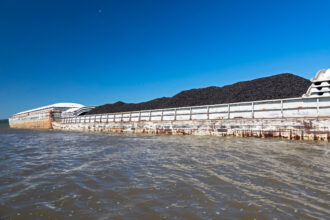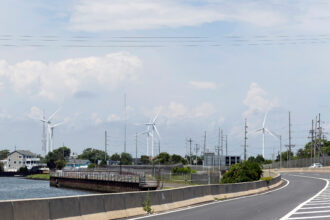ExxonMobil has yet to turn over key financial records subpoenaed by state investigators over a year ago in a climate fraud inquiry, New York’s attorney general told a judge in new court filings.
New York Attorney General Barbara Underwood asked Judge Barry Ostrager to order the oil giant to obey the state’s subpoenas, saying that company employees had told investigators that the records are readily accessible.
At issue are records that document the company’s estimates of how future limits on global warming pollution would affect its sales of oil and gas.
Known as “proxy costs,” these estimates are thought to be laid out in the cash flow spreadsheets that Underwood’s office is seeking. They could be crucial to understanding whether the assets that underlie Exxon’s value as a company might be stranded if fossil fuels have to be left in the ground to stave off climate change.
Exxon has steadfastly insisted in public documents and statements, including its filings with the U.S. Securities and Exchange Commission, that none of its oil and gas reserves will become stranded. The Exxon investigation in New York and a similar investigation underway in Massachusetts seek to determine if the company misled investors and the public about risks related to climate change.
“Exxon has repeatedly assured investors that it is taking active steps to protect the company’s value from the risk that climate change regulation poses to its business,” the attorney general says in the 30-page motion filed in the Supreme Court of New York in Manhattan.
Two Sets of Numbers?
State investigators suspect that the company used one set of numbers in describing risks to investors but used a secret set internally to calculate the impact of greenhouse gas regulations. The internal estimates are the ones the investigators want to see.
The evidence lies in records related to 26 of Exxon’s largest projects, the investigators say.
“Cash flow spreadsheets likely provide the most direct evidence of what proxy costs, if any, Exxon used, as well as the financial impact of any failure to abide by the company’s public representations,” the motion, some of which was redacted, states.
Exxon has said that searching through hundreds of thousands of documents for the spreadsheets is too much of a burden to find what investigators are seeking. But the attorney general’s office says that argument has been undermined by the testimony of Exxon’s employees, who have said the company has the spreadsheets stored in an organized and readily accessible manner.
Exxon Says It’s Taking Steps on Climate Risk
Underwood, who inherited the investigation after the abrupt resignation of former Attorney General Eric Schneiderman, asserts that the basis for the state’s investigation has only grown stronger because the company continues to maintain it is taking steps to protect the company’s value from climate change risks.
Exxon claims that it safeguards the company’s assets, and consequently its investors, by considering a proxy cost for greenhouse gas emissions in the company’s long-term projections that form the foundation of it internal planning.
The investigators say they doubt that the same information was presented to investors as required by law.
“The evidence obtained in the course of the OAG’s investigation provides substantial reason to believe Exxon’s representations were false and misleading,” according to the motion.
The attorney general’s office issued its first subpoena in 2015, three months after InsideClimate News published an investigative series of stories disclosing Exxon’s early understanding of the link between burning fossil fuels and global warming in the late 1970s. The Los Angeles Times later published similar stories.
New York investigators later subpoenaed Exxon records held by company auditor PricewaterhouseCoopers, seeking internal records the company may have provided its accountants.
Exxon has faced a series of legal setbacks in the last few months. The company was rebuffed in New York federal court in its attempt to block investigations by both the New York Attorney General’s office and the Massachusetts Attorney General’s office. The company also failed to halt the Massachusetts investigation in that state’s highest court.
About This Story
Perhaps you noticed: This story, like all the news we publish, is free to read. That’s because Inside Climate News is a 501c3 nonprofit organization. We do not charge a subscription fee, lock our news behind a paywall, or clutter our website with ads. We make our news on climate and the environment freely available to you and anyone who wants it.
That’s not all. We also share our news for free with scores of other media organizations around the country. Many of them can’t afford to do environmental journalism of their own. We’ve built bureaus from coast to coast to report local stories, collaborate with local newsrooms and co-publish articles so that this vital work is shared as widely as possible.
Two of us launched ICN in 2007. Six years later we earned a Pulitzer Prize for National Reporting, and now we run the oldest and largest dedicated climate newsroom in the nation. We tell the story in all its complexity. We hold polluters accountable. We expose environmental injustice. We debunk misinformation. We scrutinize solutions and inspire action.
Donations from readers like you fund every aspect of what we do. If you don’t already, will you support our ongoing work, our reporting on the biggest crisis facing our planet, and help us reach even more readers in more places?
Please take a moment to make a tax-deductible donation. Every one of them makes a difference.
Thank you,














